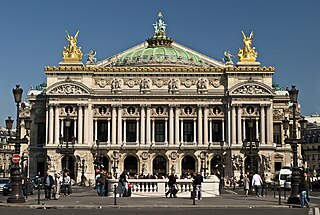 W
WOpera is a form of theatre in which music is a fundamental component and dramatic roles are taken by singers, but is distinct from musical theatre. Such a "work" is typically a collaboration between a composer and a librettist and incorporates a number of the performing arts, such as acting, scenery, costume, and sometimes dance or ballet. The performance is typically given in an opera house, accompanied by an orchestra or smaller musical ensemble, which since the early 19th century has been led by a conductor.
 W
WThe Albanian opera includes the art of opera in Albania and opera in the Albanian language.
 W
WFrench opera is one of Europe's most important operatic traditions, containing works by composers of the stature of Rameau, Berlioz, Gounod, Bizet, Massenet, Debussy, Ravel, Poulenc and Messiaen. Many foreign-born composers have played a part in the French tradition as well, including Lully, Gluck, Salieri, Cherubini, Spontini, Meyerbeer, Rossini, Donizetti, Verdi and Offenbach.
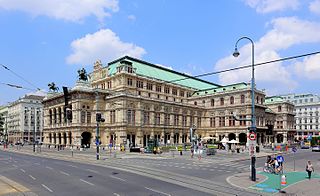 W
WOpera in German is that of the German-speaking countries, which include Germany, Austria, and the historic German states that pre-date those countries.
 W
WItalian opera is both the art of opera in Italy and opera in the Italian language. Opera was born in Italy around the year 1600 and Italian opera has continued to play a dominant role in the history of the form until the present day. Many famous operas in Italian were written by foreign composers, including Handel, Gluck and Mozart. Works by native Italian composers of the 19th and early 20th centuries, such as Rossini, Bellini, Donizetti, Verdi and Puccini, are amongst the most famous operas ever written and today are performed in opera houses across the world.
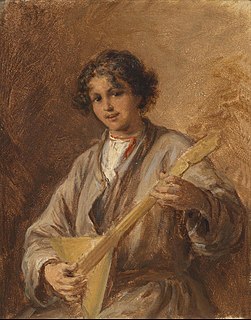 W
WRussian opera is the art of opera in Russia. Operas by composers of Russian origin, written or staged outside of Russia, also belong to this category, as well as the operas of foreign composers written or intended for the Russian scene. These are not only Russian-language operas. There are examples of Russian operas written in French, English, Italian, Latin, Ancient Greek, Japanese, or the multitude of languages of the nationalities that were part of the Empire and the Soviet Union.
 W
WThe Bayreuth Festival is a music festival held annually in Bayreuth, Germany, at which performances of operas by the 19th-century German composer Richard Wagner are presented. Wagner himself conceived and promoted the idea of a special festival to showcase his own works, in particular his monumental cycle Der Ring des Nibelungen and Parsifal.
 W
WThe Bibliothèque-Musée de l'Opéra National de Paris is a library and museum of the Paris Opera and is located in the 9th arrondissement at 8 rue Scribe, Paris, France. It is no longer managed by the Opera, but instead is part of the Music Department of the National Library of France. The Paris Opera Library-Museum is open daily; an admission fee is charged.
 W
WThe Comédie-Française or Théâtre-Français is one of the few state theatres in France. Founded in 1680, it is the oldest active theatre company in the world. Established as a French state-controlled entity in 1995, it is the only state theatre in France to have its own permanent troupe of actors. The company's primary venue is the Salle Richelieu, which is a part of the Palais-Royal complex and located at 2 rue de Richelieu on the Place André-Malraux in the 1st arrondissement of Paris.
 W
WComédie-Italienne or Théâtre-Italien are French names which have been used to refer to Italian-language theatre and opera when performed in France.
 W
WGrand opera is a genre of 19th-century opera generally in four or five acts, characterized by large-scale casts and orchestras, and lavish and spectacular design and stage effects, normally with plots based on or around dramatic historic events. The term is particularly applied to certain productions of the Paris Opéra from the late 1820s to around 1850; 'grand opéra' has sometimes been used to denote the Paris Opéra itself.
 W
WIl teatro alla moda is a satirical pamphlet in which its author, the Venetian composer Benedetto Marcello (1686–1739), vents his critical opinions on the milieu of the Italian opera seria in the first decades of the eighteenth century. It was first published anonymously in Venice, by the end of 1720. Virtually every aspect of opera seria and its social environment is mercilessly criticized by Marcello: the artificiality of plots, the stereotyped format of music, the extravagant scenography and machinery, the inability and venality of composers and poets, the vanity and vulgarity of singers, the avidity of impresarios, the ineptitude of musicians.
 W
W"It ain't over till the fat lady sings" is a colloquialism which is often used as a proverb. It means that one should not presume to know the outcome of an event which is still in progress. More specifically, the phrase is used when a situation is nearing its conclusion. It cautions against assuming that the current state of an event is irreversible and clearly determines how or when the event will end. The phrase is most commonly used in association with organized competitions, particularly sports.
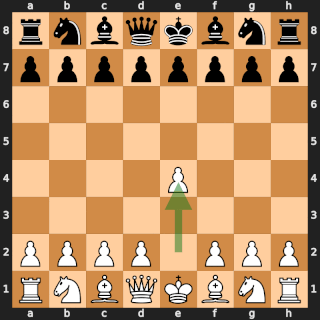 W
WThe Opera Game was an 1858 chess game played at an opera house in Paris, during Bellini's opera Norma, between the American chess master Paul Morphy and two strong amateurs: the German noble Karl II, Duke of Brunswick and the French aristocrat Comte Isouard de Vauvenargues. Duke Karl and Count Isouard consulted together, playing as partners against Morphy.
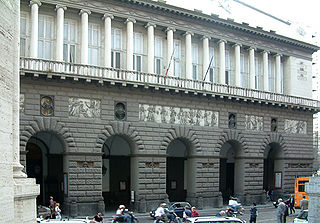 W
WAn opera house is a theatre building used for performances of opera. It usually includes a stage, an orchestra pit, audience seating, and backstage facilities for costumes and building sets.
 W
WThe Opéra-Comique is a Paris opera company, which was founded around 1714 by some of the popular theatres of the Parisian fairs. In 1762 the company was merged with, and for a time took the name of its chief rival the Comédie-Italienne at the Hôtel de Bourgogne, and was also called the Théâtre-Italien up to about 1793, when it again became most commonly known as the Opéra-Comique. Today the company's official name is Théâtre national de l'Opéra-Comique, and its theatre, with a capacity of around 1,248 seats, sometimes referred to as the Salle Favart, is located in Place Boïeldieu, in the 2nd arrondissement of Paris, not far from the Palais Garnier, one of the theatres of the Paris Opéra. The musicians and others associated with the Opéra-Comique have made important contributions to operatic history and tradition in France, and to French opera. Its current mission is to reconnect with its history, and discover its unique repertoire, to ensure production and dissemination of operas for the wider public. Mainstays of the repertory at the Opéra-Comique during its history have included the following works which have each been performed more than 1,000 times by the company: Cavalleria Rusticana, Le chalet, La dame blanche, Le domino noir, La fille du régiment, Lakmé, Manon, Mignon, Les noces de Jeannette, Le pré aux clercs, Tosca, La bohème, Werther and Carmen, the last having been performed more than 2,500 times.
 W
WThe art form known as opera originated in Italy in the sixteenth and seventeenth centuries, though it drew upon older traditions of medieval and Renaissance courtly entertainment. The word opera, meaning "work" in Italian, was first used in the modern musical and theatrical sense in 1639 and soon spread to the other European languages. The earliest operas were modest productions compared to other Renaissance forms of sung drama, but they soon became more lavish and took on the spectacular stagings of the earlier genre known as intermedio.
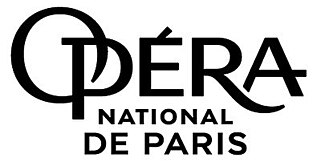 W
WThe Paris Opera is the primary opera and ballet company of France. It was founded in 1669 by Louis XIV as the Académie d'Opéra, and shortly thereafter was placed under the leadership of Jean-Baptiste Lully and officially renamed the Académie Royale de Musique, but continued to be known more simply as the Opéra. Classical ballet as it is known today arose within the Paris Opera as the Paris Opera Ballet and has remained an integral and important part of the company. Currently called the Opéra national de Paris, it mainly produces operas at its modern 2,723-seat theatre Opéra Bastille which opened in 1989, and ballets and some classical operas at the older 1,979-seat Palais Garnier which opened in 1875. Small scale and contemporary works are also staged in the 500-seat Amphitheatre under the Opéra Bastille.
 W
WLa Scala is an opera house in Milan, Italy. The theatre was inaugurated on 3 August 1778 and was originally known as the Nuovo Regio Ducale Teatro alla Scala. The premiere performance was Antonio Salieri's Europa riconosciuta.
 W
WThe Teatro Carcano is a theatre in Milan, Italy, located at 63 Corso di Porta Romana. Although now exclusively devoted to plays and dance, it served as an opera house for much of the 19th century and saw the premieres of several important operas. Completed in 1803, the theatre was commissioned by the Milanese aristocrat and theatre-lover Giuseppe Carcano and originally designed by Luigi Canonica. Over the succeeding two centuries it has undergone several restructurings and renovations and for a time in the mid-20th century functioned as a cinema.
 W
WTeatro Coccia is the main opera house in Novara, and is also the most important "historical" theatres in Piedmont. It faces along via Fratelli Rosselli, and delimits piazza dei Martiri to the west and piazza Giacomo Puccini to the east.